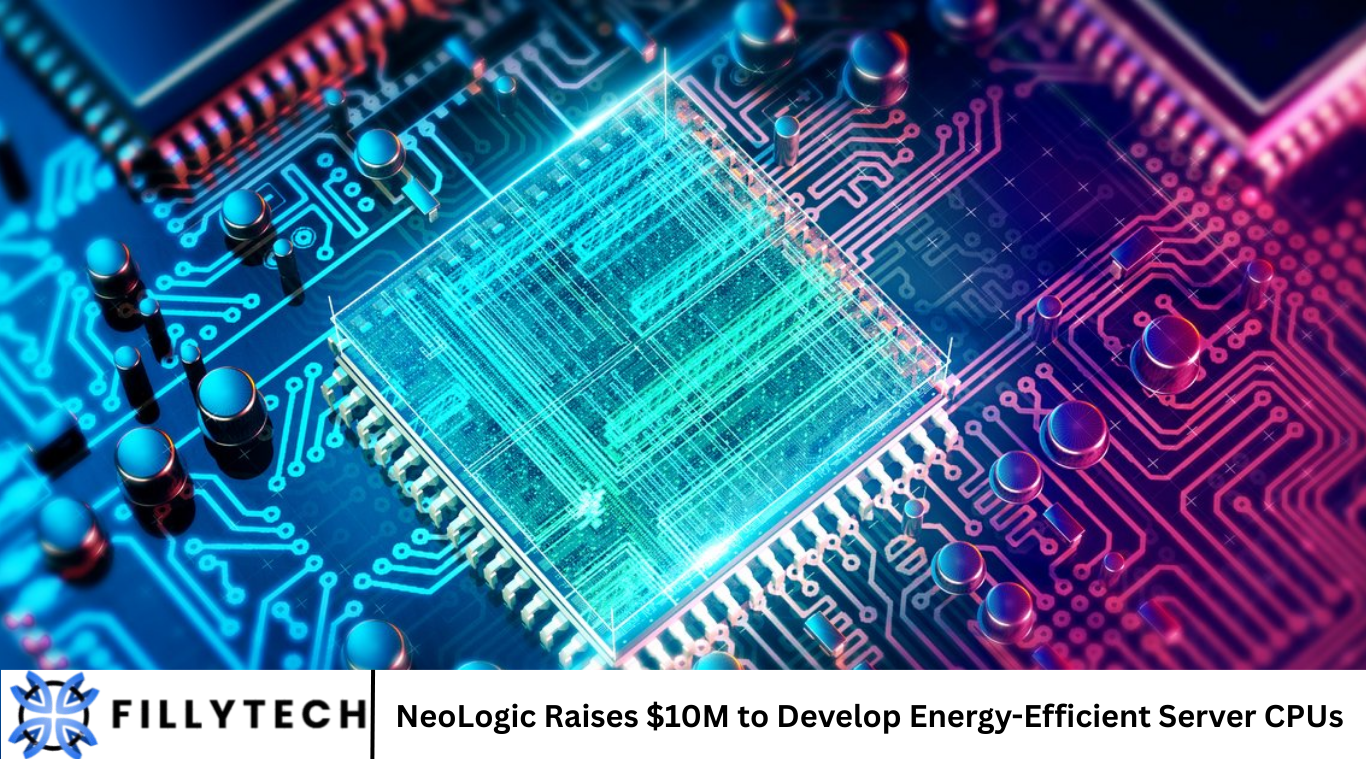Israeli semiconductor startup NeoLogic has secured $10 million in Series A funding to accelerate the development of energy-efficient server CPUs. This investment highlights the growing demand for low-power, high-performance processors tailored for data centers, AI workloads, and cloud computing.
The round was led by Kompas VC, with participation from M Ventures, Maniv Mobility, and lool Ventures. The funding will support NeoLogic’s product roadmap, expand its engineering team, and move its innovative processor architecture closer to commercialization.
A Different Approach to Power Efficiency
NeoLogic is developing CPUs based on its proprietary CMOS+ (Quasi-CMOS) technology. Instead of chasing smaller transistor nodes, the company focuses on logic-level innovation. Its CMOS+ architecture simplifies circuit design by using fewer transistors without sacrificing performance.
This allows the CPU to deliver:
- Up to 50% lower power consumption
- Smaller chip area (up to 40% less)
- Increased performance per watt
These benefits are achieved while staying fully compatible with existing CMOS manufacturing processes.
Impact on Data Centers
Data centers face rising energy demands, especially with the growth of AI and cloud computing. NeoLogic’s approach aims to cut server CPU power usage by as much as 30%, which could result in major savings across cooling, infrastructure, and electricity costs.
By reducing transistor count and circuit complexity, NeoLogic offers an alternative to traditional chip scaling and power-hungry architectures.
Roadmap and Vision
NeoLogic plans to deliver a prototype chip by late 2025 and begin commercial deployment in AI data centers by 2026 or 2027. The company is currently collaborating with leading semiconductor players and hyperscalers to validate its design and bring products to market.
With a lean, experienced team and a clear technical vision, NeoLogic aims to reshape how CPUs are designed for power-sensitive applications.
About the Company
Founded in 2021 by Dr. Avi Messica (CEO) and Ziv Leshem (CTO), NeoLogic combines deep expertise in semiconductor physics and VLSI design. The team believes that circuit-level breakthroughs can deliver better returns than traditional node shrinking.
This funding round brings NeoLogic’s total capital raised to $18 million, including previous seed investments.
Frequently Asked Question
What is NeoLogic building?
NeoLogic is developing energy-efficient server CPUs using a novel architecture called CMOS+, which reduces transistor count and power use.
How is CMOS+ different from traditional chip designs?
It simplifies circuit logic, allowing CPUs to operate with fewer transistors while maintaining performance and compatibility with existing fabrication methods.
How much power savings are expected?
NeoLogic’s chips could lower CPU power consumption by up to 50%, with potential server-level savings around 30%.
When will NeoLogic launch its first product?
A prototype is expected by the end of 2025, with commercial deployment targeted for 2026–2027.
Who invested in NeoLogic?
The Series A round was led by Kompas VC, with support from M Ventures, Maniv Mobility, and lool Ventures.
What market is NeoLogic targeting?
Its focus is on data centers, AI infrastructure, and any high-performance computing environments where energy efficiency is critical.
Why is this important now?
Data center power consumption is rising rapidly. More efficient CPUs can reduce energy usage, operating costs, and environmental impact.
Conclusion
NeoLogic’s $10 million Series A funding marks a significant step toward redefining server CPU architecture for the modern era. By focusing on energy efficiency through circuit-level innovation rather than traditional scaling, the company offers a compelling solution to one of the biggest challenges in today’s data centers: power consumption.With its CMOS+ technology, NeoLogic aims to deliver high-performance, low-power processors that are scalable, manufacturable, and ready for real-world deployment. As data demands continue to grow, especially in AI and cloud computing, NeoLogic’s approach could play a key role in building more sustainable and cost-effective computing infrastructure.


